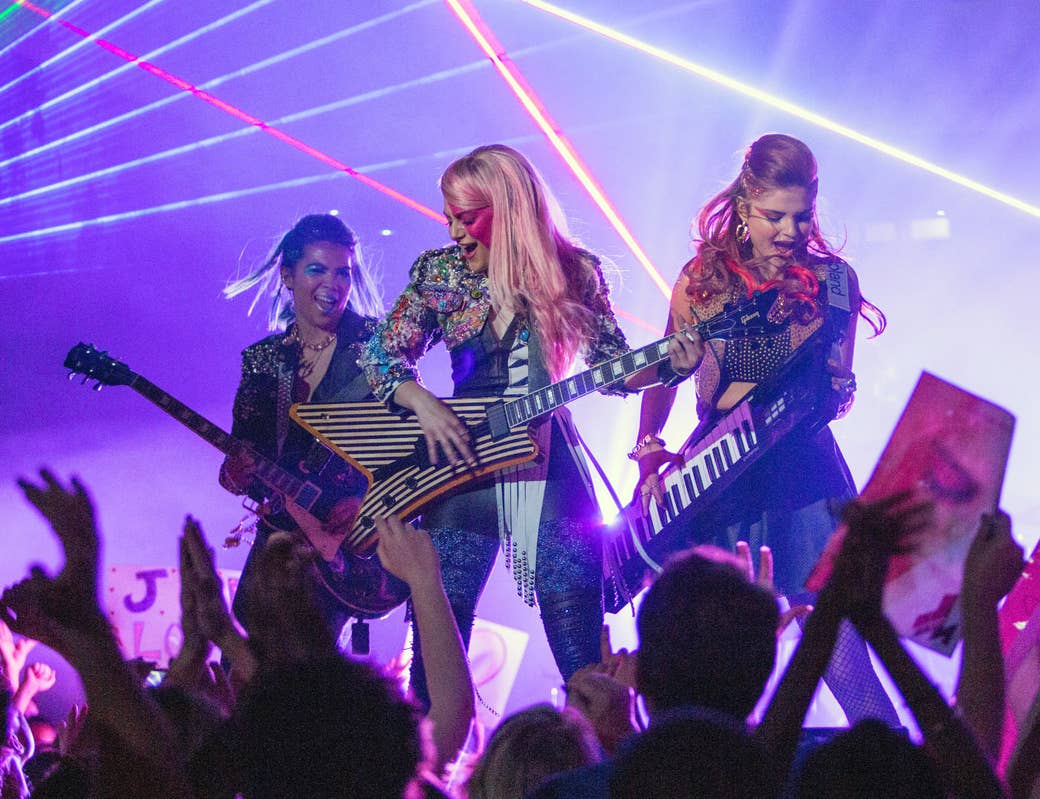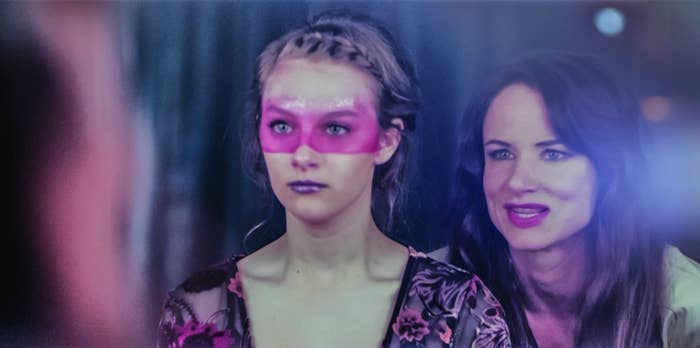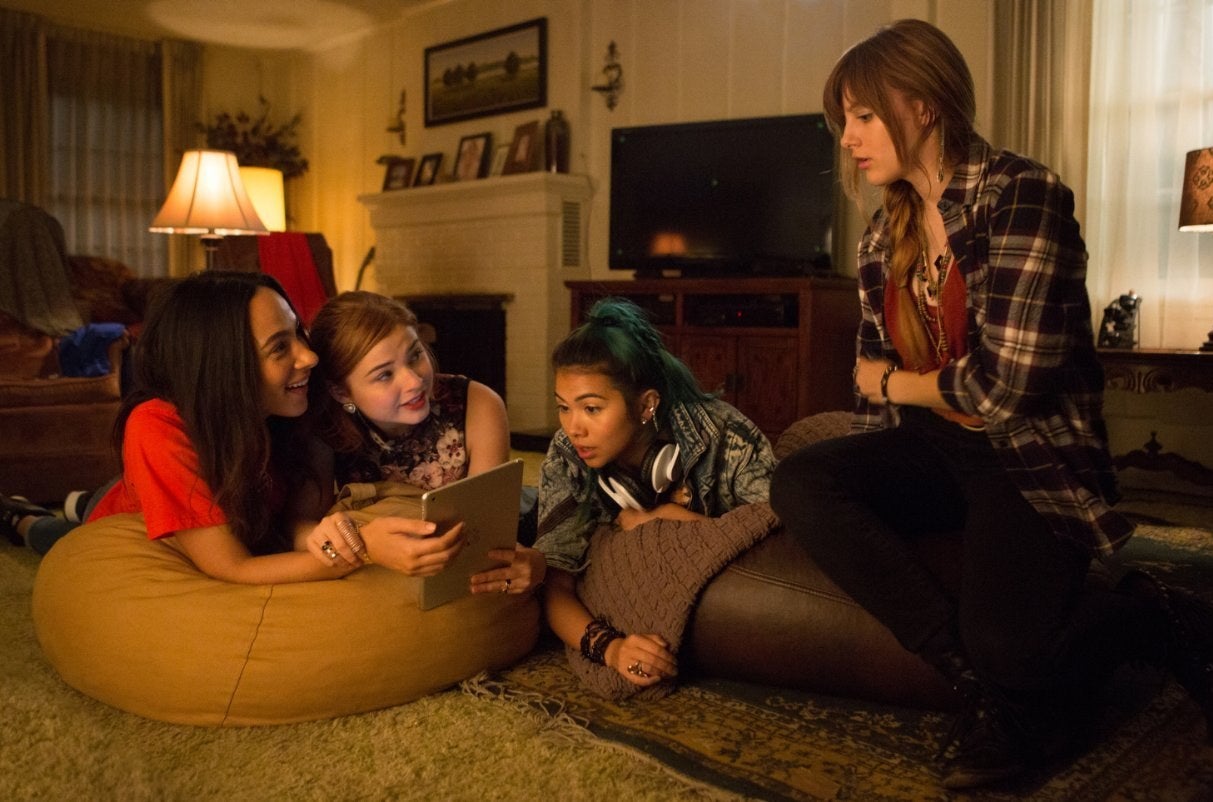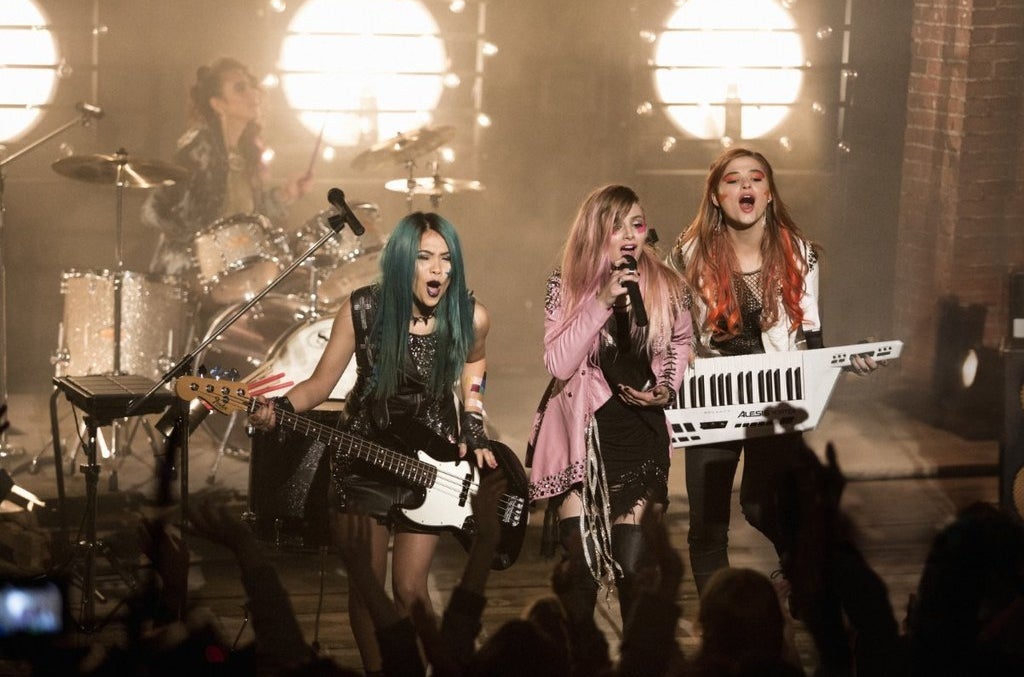
There's a part in Chuck Klosterman's recent GQ profile of Taylor Swift in which he mentions to the singer/songwriter/massive star that a mutual acquaintance had referred to her as "calculating," and you can pretty much feel her flinch right there on the page. It's a term she hates — and who wouldn't? — because it implies there's cold-blooded curation to her sometimes very public friendships, romantic relationships, and interactions with fans. Swift's brand, after all, is one of abiding earnestness and accessibility, which means her songs are assumed to be confessional and are inevitably and lengthily analyzed for how they correlate to past lovers, friends, or frenemies.
But calculation in a broader sense is also a quality we pretend isn't suited to artists, especially female artists, who are often expected to be impulsive and uncontrived and more concerned with the heart than the mind. Which is bullshit — as Swift points out, she probably wouldn't have achieved the same dominance as a singer and songwriter if she were just "shooting from the hip." "In that sense, I do think about things before they happen," she said. "You can be accidentally successful for three or four years. Accidents happen. But careers take hard work."
The main character in Jem and the Holograms, Jerrica Benton, aka Jem, becomes a star by way of one of those accidents. She's a normal 18-year-old suburban girl (played by Nashville's Aubrey Peeples) who rockets to an improbable sort of internet stardom after a video of one of her songs becomes a viral hit. But she's also, of course, a reimagining of a character from the '80s cartoon, as is her sister Kimber (Stefanie Scott) and her foster sisters Shana (Aurora Perrineau) and Aja (Hayley Kiyoko), who eventually also make up her band.

Jem and the Holograms — which was directed Jon M. Chu (of Step Up 3D and G.I. Joe: Retaliation) and written by his Legion of Extraordinary Dancers collaborator Ryan Landels — is a very loose, low-budget, live-action take on the Hasbro show and toy line, one that tries to transform the story from one about a character with a secret rock star identity to one about a character worried her online persona doesn't reflect her true self. And this is a goddamn ingenious idea, that someone's better-lit, more rehearsed, Instagram-filtered internet self is the contemporary Jem to their IRL Jerrica. But the movie itself turns into this flaming garbage pile that shows exactly how confused everyone is about what constitutes authenticity these days.
Because, as is often the case, Taylor Swift is right. Jem and the Holograms is a movie about a pop star for whom nothing is planned, and who rises to a ridiculous level of celebrity in what is apparently the space of a month. It's all about setting up a false division between what is genuine and pure and what is calculated and therefore phony. It does a runaround on the idea of musical stardom involving work or desire, carefully relieves its main character of ever having to make a choice that could be interpreted as something so sullying as ambitious.
The video that makes Jerrica, or rather Jem, a viral star gets uploaded by Kimber without her knowledge. Jerrica only accepts the L.A. gigs Starlight Records owner Erica Raymond (Juliette Lewis, hammy enough for a croque monsieur) offers — and that form as much of a throughline as the movie can manage — because Jerrica's Aunt Bailey (Molly Ringwald) needs the money to keep her house. Jerrica, as far as we can see, had no actual desire for a professional music career until it was bestowed upon her by the internet, and that is meant to mark her as a sincere talent.

For a movie about someone learning to come out of their shell, Jem and the Holograms is utterly confounding about what it even means to be authentic. Here are some of the things to which it gives a thumbs-down:
Getting professionally styled! Because when their makeovers happen, the girls' personal fashion choices get insulted and it's strongly suggested they reimagine themselves — but when they break free in the end, they choose to wear what are essentially the same looks.
Pop music! Pop's hollowness is affirmed by both a rant from love interest Rio (Ryan Guzman) about "pop tarts who can't sing" and by Jerrica's joking insistence on being given the label of "rock star," even though the group's songs are undeniably catchy simulacra of recent pop radio hits.
Artificially enhanced performances! During a gig at a legendary venue, the power goes out and Jerrica and co. demonstrate their musical cred by continuing on acoustically — except that they also managed to rehearse to perfection a song they've seemingly never performed together before in the space of a day.
Aliases! Jerrica's choice to perform in a wig and glittery makeup as Jem apparently makes her easily replaceable in the eyes of Starlight Records, though why no one would be able to tell the difference is never clear, especially when she got famous off the strength of an original, unadorned song.
There's also the strangeness of Jerrica's battles to bring her sisters along as her band, while Erica tries to manipulate her into a solo contract. Like many of the movie's plot developments, these maneuvers make no sense (toward the end, characters attempt an elaborate break-in involving a building that they should be able to walk into without any problem, and let's not even get started on the robot). But then neither does Jerrica's insistence that her siblings are part of her act, when she wrote and performed the song that went viral by herself.
It's as if there's something unseemly about her really claiming the spotlight, despite having earned it, the other characters scolding her for her selfishness in not trying harder to haul them along for the ride. Not every would-be star needs swagger, but it's disheartening to watch a supposedly uplifting storyline that reinforces such negative messaging about owning your work, having aspirations, training, and pursuing goals. Jem and the Holograms bombards its heroine with messages about believing in herself, not being afraid, and letting her specialness shine, at which point the opportunities will just come to her.


Jem and the Holograms may not be realistic in its depiction of viral stardom, but it does get something right in this new era of online celebrity, which is that it insists its heroine find more of a reward in how inspiring she is to her fans than in financial compensation. It's fitting, because the film was initially framed by its producers as a collaborative effort involving fans of the original Jem, who were encouraged to submit "audition" videos as well as ones in which they talk about what they loved about the cartoon.
Their testimonials about what the character meant to them were then cut into the completed film to represent an outpouring of internet love for this new Jem, whose three released songs have apparently saved lives and taught people to be themselves over the course of her month of fame. The existing fan love was callously crowdsourced and leveraged into a product that's now being resold to those same people. Now who's being calculating?
